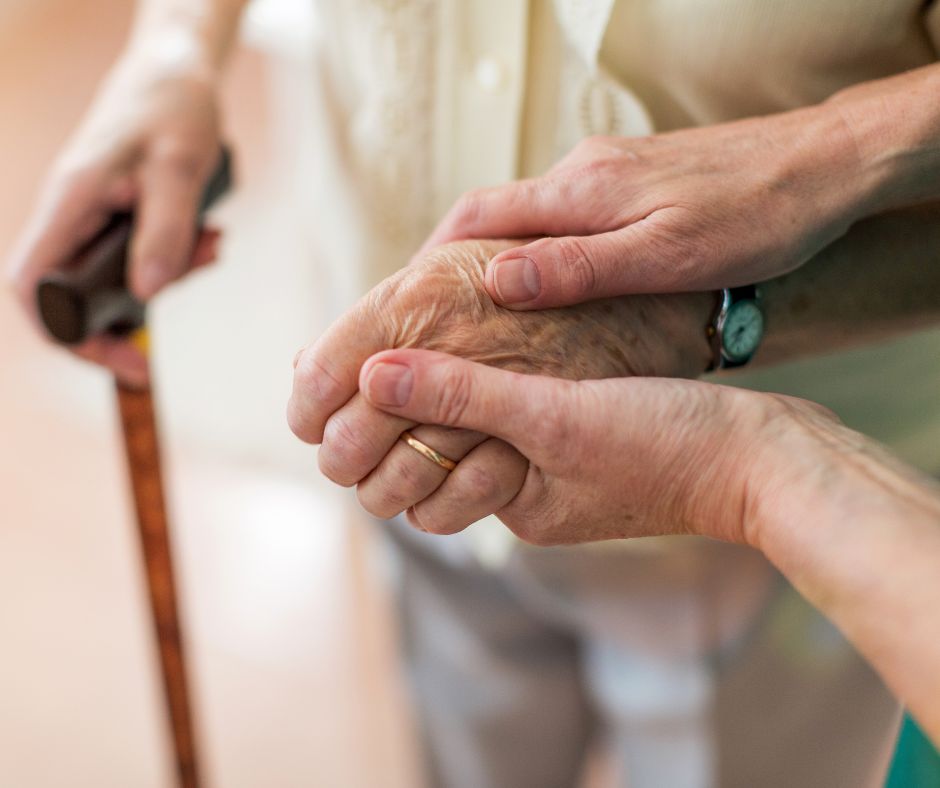If you’re researching end-of-life care, you may have come across two similar terms: death doula and hospice nurse. While both roles aim to provide comfort and support during the final stages of life, their responsibilities and approaches are very different.
Understanding the differences between a hospice nurse and a death doula can help individuals and families make better decisions during emotionally difficult times.
Stratford Career Institute offers an online Death Doula course designed to help people explore the field and better understand what it involves.
While Stratford does not provide certification or formal credentials, our course may be a helpful first step if you’re curious about supporting others at the end of life.
So, death doula versus hospice nurse—what’s the distinction? Let’s break it down.
How a Hospice Nurse & Death Doula are Different
When navigating end-of-life care options, it’s essential to understand the distinct roles between the hospice nurse and the death doula.
While both provide compassionate support during a profoundly emotional time, their responsibilities, training, and approaches to care are quite different.
Understanding how they work individually and how they may work together can help families make informed decisions for themselves or their loved ones.
Hospice Nurse
A hospice nurse is a licensed medical professional who provides care to individuals with terminal illnesses. Their focus is on comfort and quality of life rather than curative treatment.
Hospice nurses typically work as part of a larger medical team that may include physicians, aides, social workers, and chaplains. Their duties often involve:
- Managing pain and symptoms with medication,
- Monitoring vital signs and health changes,
- Assisting with hygiene and mobility,
- Educating family members on what to expect in the final stages, and
- Offering emotional reassurance and crisis intervention when needed.
Because they are part of a regulated healthcare system, hospice nurses must follow specific protocols and charting requirements.
They often work for hospice agencies, hospitals, or home healthcare organizations. While they provide essential clinical care, caseloads or visit schedules may limit their time with patients.
Death Doula
A death doula, sometimes called an end-of-life doula or hospice doula, is a non-medical caregiver who offers emotional, spiritual, and practical support during the dying process. Unlike hospice nurses, death doulas are not licensed to provide medical treatment.
Instead, their role centers around presence, connection, and easing the emotional burden of death for both the individual and their loved ones.
Death doulas may:
- Sit vigil with the dying to provide companionship,
- Help facilitate legacy projects or life reviews,
- Offer guided meditation or relaxation techniques,
- Coordinate rituals or personalized end-of-life wishes, and
- Provide support and education to family members throughout the process.
Because their focus is holistic and non-clinical, death doulas often have more time to spend with each family and may be available for extended periods.
Their support is deeply personal and tailored to the individual’s emotional, spiritual, or cultural needs. Many families find that doulas can complement medical care by filling in emotional or spiritual gaps.
Death Doulas vs Hospice Nurses: Key Differences
So, what sets these roles apart? Here are the core differences between hospice nurses and death doulas:
| Category | Hospice Nurse | Death Doula |
| Training & Licensing | Licensed medical professional | No formal license required |
| Primary Focus | Physical comfort and symptom management | Emotional, spiritual, and personal support |
| Affiliation | Part of a healthcare team | Usually hired privately |
| Scope of Services | Administers medication, tracks health changes | Provides presence, guidance, and support |
| Post-Death Support | May be limited | Often helps families with closure |
These roles aren’t in conflict. A hospice nurse and a death doula can work side by side to support patients and families from every angle.
Can a Death Doula Replace Hospice?
No, a death doula does not replace hospice care. Hospice provides essential medical services that only licensed professionals can perform. A death doula cannot administer medication or make clinical decisions.
That said, a death doula can offer support long before a person becomes eligible for hospice, and they may continue assisting loved ones after medical care ends.
Want to Learn More About Death Doulas?
If you’re curious about what it’s like to support someone at the end of life, Stratford Career Institute offers a flexible, online Death Doula training course. Our introductory course may help you decide if this path is right for you.
Stratford Career Institute is not accredited and does not provide professional credentials. Our goal is to offer affordable, beginner-friendly courses that help you explore career options and gain personal insight.
Explore Stratford’s Death Doula course today to learn more about this compassionate and growing area of end-of-life support.


